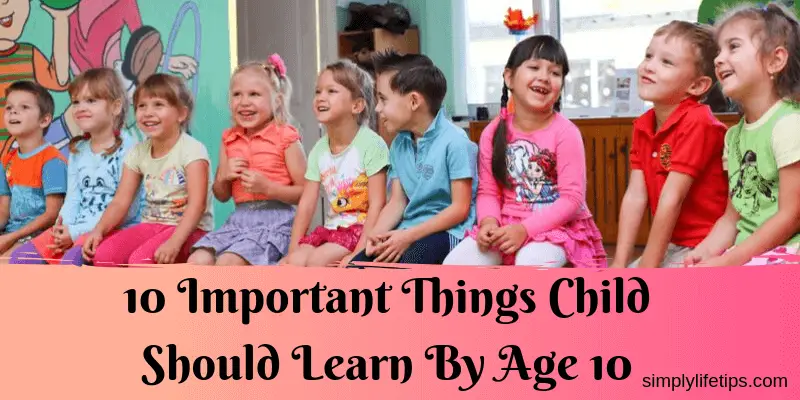You should avoid common parenting mistakes for better parenting. Parenting is a journey filled with joy, challenges, and, at times, uncertainty. While there’s no one-size-fits-all manual for raising children, avoiding common parenting mistakes can make the path smoother and more rewarding. In this article, we will explore eight of these prevalent missteps that parents often encounter, offering insights and strategies to enhance your parenting journey. By steering clear of these pitfalls, you can create a nurturing environment that fosters your child’s growth and development while strengthening your parent-child relationship.
What Are Parenting Mistakes?
Parenting mistakes encompass a wide range of errors that parents may unintentionally make while raising their children. These missteps can vary in nature and impact, but they often stem from the complexities of parenting and the lack of a one-size-fits-all approach. Some common parenting mistakes include being overly controlling, neglecting effective communication, setting unrealistic expectations, and lacking consistency in discipline.
Parenting mistakes can also extend to issues like not prioritizing self-care, failing to lead by example, or comparing one’s child to others. The consequences of these missteps can affect a child’s self-esteem, behaviour, and overall development. Recognizing and addressing these common parenting pitfalls is crucial to creating a nurturing and supportive environment for children to thrive. In the following sections, we will delve into eight such common mistakes and provide insights on how to avoid them for more effective and fulfilling parenting.
8 Parenting Mistakes You Should Try To Avoid

1. Avoid Criticizing Your Children
When your children make mistakes, steer clear of criticism and instead focus on the action, guiding them to correct it. Just as you wouldn’t appreciate constant criticism, neither do they. Address their mistakes with love and understanding, nurturing their emotional well-being while teaching valuable lessons.
2. Encourage Rather Than Control Their Interests and Skills
Foster your children’s interests and skills instead of trying to control or halt them. Provide guidance and support as they develop their talents and passions. Offer them the independence to explore and discover new activities, empowering them to learn and grow independently.
3. Promote Independence
While you may be more efficient at certain tasks, encourage your children to handle age-appropriate responsibilities. Allowing them to complete certain chores and activities on their own not only builds their independence but also boosts their self-confidence and sense of accomplishment.
4. Mindful Praise
Praise is a powerful tool for building self-esteem and confidence, but it should be used thoughtfully. Instead of praising personal traits, commend specific actions, efforts, and skills that lead to positive outcomes. This underscores the importance of effort in achieving future success.
5. Nurture Healthy Communication
Effective communication within the family is essential for fostering a positive family environment and strengthening emotional bonds. Healthy interactions play a significant role in your children’s self-esteem and well-being.
6. Avoid Pursuing Perfection
Steer clear of setting excessively high standards for your children, as it can lead to anxiety and fear of disappointing you. Please encourage them to learn from their mistakes and embrace failure as a valuable learning opportunity.
7. Refuse To Make Comparisons
Never compare your children to their friends, siblings, or anyone else. Such comparisons can have detrimental effects on their self-esteem and may lead to feelings of inadequacy. Remember that every individual is unique, and comparing serves no positive purpose.
8. Project Self-Confidence
Children learn from their parents’ words and actions. Always speak positively about yourself and demonstrate how to handle challenging situations, exhibit compassion and kindness to others, and develop self-confidence. Your own self-assuredness sets a powerful example for them to follow.
Remember, it’s not necessary to walk on eggshells or constantly fret over every word or action around children. What truly matters is fostering open and loving communication as a priority in your interactions with them. With this foundation in place, many other aspects of parenting will naturally fall into place.
Self-esteem is both self-judgment and an attitude towards oneself. It encompasses personal beliefs, such as “I am competent” or “I am worthy.” Nurturing healthy self-esteem in your children is paramount, as it equips them with the vital skill of resilience, which will serve them well throughout their lives.
As a parent, it’s perfectly normal to make mistakes from time to time. However, it’s essential to ensure that these missteps do not have a detrimental impact on your child’s self-esteem. By embracing open communication, expressing love, and allowing room for imperfections, you create an environment that encourages your child’s growth and self-assuredness.
Parenting Mistakes – 10 Signs of Bad Parenting – Infographic
Best Parenting Tips – 10 Things Children Want from Parents
Final Thoughts
In summation, parenting is a dynamic journey with its share of challenges and rewards. By acknowledging and steering clear of common parenting mistakes, we can create a more nurturing and constructive environment for our children. This involves reframing criticism into constructive guidance, promoting autonomy rather than control, and valuing effort over perfection. Furthermore, balanced praise, effective communication, refraining from comparisons, and projecting self-confidence collectively lay the foundation for well-rounded and self-assured children. Avoiding these pitfalls leads to healthier parent-child relationships and equips children with the resilience and skills they need to navigate life’s complexities. Ultimately, embracing these principles can make the parenting experience more fulfilling and enriching for both parents and children.
Related Posts
- Things You Should Never Forbid Children From Doing
- Is Physical Punishment Of Children Good For Children’s Development?
- 10 Important Things Your Child Should Learn By Age 10
- Teenage Addictions | How To Deal With Your Children
Are you making any of the above parenting mistakes?
I appreciate your visit. I trust you found the post enjoyable.
Remember, Sharing Is Caring! Feel free to share this post on your social media and other networks to help others discover it.
PVM
References: MedicineNet

Mathukutty P. V. is the founder of Simply Life Tips. He is a Blogger, Content Writer, Influencer, and YouTuber. He is passionate about learning new skills. He is the Director of PokketCFO.
He lives with the notion of “SIMPLE LIVING, CREATIVE THINKING”. He Believes – “Sharing is caring.” and “Learning never ends.”




